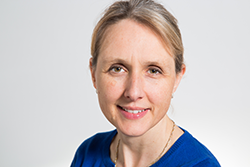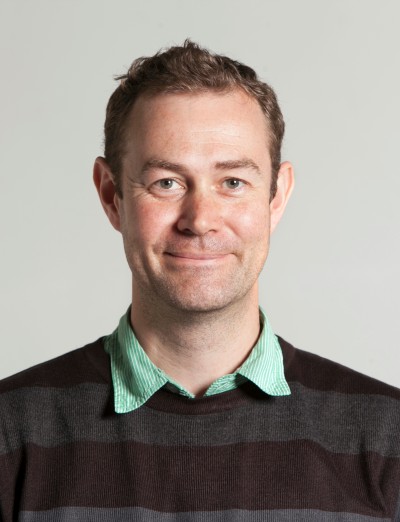Immunology is the study of the immune system. Our clinical immunology department specialises in adult immunodeficiency — people whose immune systems are not working properly.
Our team of medical consultants, specialist registrars, specialist nurses and clinical psychologists offer a range of services, including:
- Investigation of people who may have immunodeficiency. This is usually someone who is getting many infections.
- Lifelong management of patients with proven immunodeficiency, either due to genetic causes or secondary to other illness and treatments, except HIV. You can also visit our sexual health services and HIV services pages.
- Replacement therapy with immunoglobulins (antibodies) for people whose immune systems are unable to make enough of their own antibodies, including training for patients to infuse at home.
- Specialist clinics for immunodeficiency patients with respiratory or gastrointestinal complications.
- Transitional care for young adults with immunodeficiency, moving from children (paediatric) to adult services.
- The largest adult chronic granulomatous disease clinic in the country.
- Psychological support for people with immunodeficiency.
- Long-term follow up of patients who have had bone marrow transplantations for primary immunodeficiencies or are being assessed for bone marrow transplantation for treatment of a primary immunodeficiency.
- Management of inpatients who have been hospitalised with complications arising from primary immunodeficiency.
The department also works closely with colleagues from other specialties to provide advice on immunology, including on the results of tests from the immunology laboratory.
Most immunology clinics are in clinic 7 on the first floor of Royal Free Hospital. On entering the hospital, take the lifts or stairs to the first floor and follow signs to clinic 7 to check-in for your appointment at reception.
Some immunology clinics will take place in clinic 6 on the first floor of Royal Free Hospital and many of the Immunology young adult clinics and bone marrow transplant clinics take place in clinic 14 on the ground floor of the hospital. Your appointment letter will state the location of your appointment. If there are any changes, our team will notify you before your appointment.
People with a primary or secondary immunodeficiency can read advice about COVID-19 on the Immunodeficiency UK website, while the latest national guidance is on the gov.uk website.
If you, or someone in your household, experiences the following symptoms — a new, continuous cough and/or a high temperature — use the NHS 111 online service for advice on next steps.
If you usually take rescue antibiotics for cough and fever, we advise you to start taking these promptly as you would normally. If your symptoms worsen, please call 111.
Some patients with an immunodeficiency will need lifelong immunoglobulin replacement.
The immunology department’s team of specialist nurses provide a comprehensive home therapy service with training and support for all methods of intravenous and subcutaneous immunoglobulin.
All home therapy patients are monitored regularly in our dedicated home therapy webcam clinic.
To discuss home therapy options contact Andrew Symes, our senior clinical nurse specialist, or the nursing team, by emailing rf.
The department also provide home therapy training for non-immunology (neurology, dermatology and rheumatology) patients on immunoglobulin treatment.
For patients not able to infuse at home, our day ward offers intravenous immunoglobulin infusions on Tuesdays, Wednesdays and Thursdays. Home therapy training is provided on Mondays.
Any patients already receiving immunoglobulin on our day ward wanting to discuss or cancel existing appointments should call 020 7794 0500 ext 32232 or 32233.
Donating plasma to make immunoglobulin
Immunoglobulins are made from donated blood plasma. There is always a need for donors — click the link below to find out more.
All staff in the clinical immunology department are actively involved in research. If you are treated in the department, you are likely to be invited to take part in research.
Why is there so much research going on?
Primary immunodeficiencies are rare and still not fully understood. We are constantly trying to discover more about what causes them and what are the best treatments.
We mainly investigate what you have, why you have it and how this affects your health.
Does research involve ‘experimental’ drugs or therapies which might be dangerous?
Usually, our research just involves taking some blood, for example to see how your cells behave or to look at your DNA and try to work out which genes caused your immunodeficiency.
Even research into treatments is usually just investigating a new way of giving an existing medicine, or trying a medicine which we already use for something else and know is safe.
Do I have to take part?
No, participation in any research is completely voluntary. We will only enrol you into research if you provide written consent after being given all the relevant information.
Whether or not you choose to take part, your NHS care will be unaffected.
How do I find out more?
Speak to senior clinical research nurse Sarita Workman or a member of the research team.
The research team can be contacted on 020 7830 2140, or by emailing rf.
Our service sees and treats patients at a number of specialist clinics. Below is a description of what we do at each clinic.
Immunodeficiency clinic
Investigation and management of primary (genetic) immunodeficiency and secondary immunodeficiency (caused by an illness or treatment other than HIV).
Joint respiratory clinic
For immunodeficiency patients with significant lung disease, in collaboration with a consultant respiratory physician.
Chronic granulomatous disease clinic
Regular review of adults with chronic granulomatous disease, in collaboration with a consultant dermatologist.
Bone marrow transplant clinic
Review of patients being considered for bone marrow/stem cell transplant, such as those with severe genetic immunodeficiencies, and long-term follow-up for people who have previously had a transplant (including in childhood). This clinic is run by Professor Emma Morris and Dr Arian Laurence, in collaboration with clinical immunologists.
Complement clinic
For patients with hereditary angioedema and other disorders of complement function.
Joint gastroenterology and hepatology clinics
For monitoring and management of patients with immunodeficiency who have significant gastrointestinal or liver disease. These clinics are conducted in collaboration with our gastroenterology and hepatology colleagues.
Young adult clinic
Patients with immunodeficiency transitioning from paediatric to adult care are seen in young adult clinics by a clinical immunologist, with input from clinical nurse specialists and psychologists.
Transition clinic
A transition clinic for younger immunodeficiency patients who chose to transfer their clinical care from Great Ormond Street Hospital to the Royal Free Hospital. This clinic runs several times per year.
Secondary immunodeficiency telephone clinic
Telephone clinics for review of patients with secondary immunodeficiency.
Psychology clinic
Qualified psychologists can offer assessment and short-term talking therapy to immunodeficiency patients who require support to manage psychological needs associated with their condition, such as low mood or specific health anxiety.
Home therapy clinic
Advice regarding commencing immunoglobulin treatment, immunoglobulin home therapy training and review. These consultations are conducted virtually by video.
Referrals are accepted from GPs by the NHS e-Referral Service. We also accept referrals from other hospitals or medical professionals by letter.
Medical professionals may contact one of the doctors on the team by phone via the main hospital telephone number (020 7794 0500) for advice, or if a patient needs to be reviewed urgently.
Please note, we are unable to accept referrals for allergy.
If you are interested in providing feedback to the immunology department, including about our website, please email rf.
For further information on immunology, please visit links to the following websites:
 Translate
Translate




